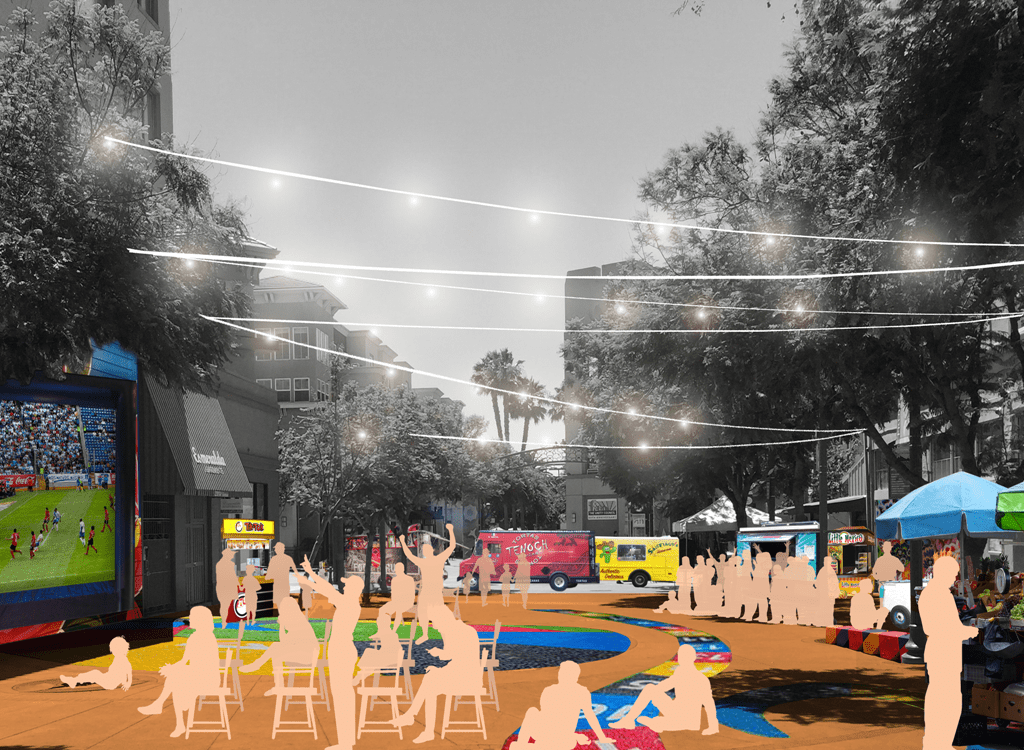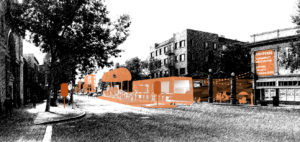
Culture, Urban Design, and Community Development in Oakland’s Fruitvale District: TOD for the Next 50 Years
UC Berkeley City Planning students’ urban design project proposes activating public space with culturally-responsive uses for current residents.
Over the summer, The Unity Council partnered with UC Berkeley’s College of Environmental Design through its “InCity” urban planning summer program. The Unity Council worked closely with a dedicated and talented group of emerging planners to develop an urban design project focused on improving key spaces in and around the Fruitvale Transit Village. The partnership was led by UCB faculty member Ginette Wessel, PhD, and The Unity Council’s Director of Planning and Strategic Partnerships, Ricardo G. Huerta Niño, PhD, who is also a faculty member of the Department of City and Regional Planning. The five students on the project –Anjelica Rivas, Cecilia De Vera, Graham Harbison, Maja Cielo José, and Zoe Seibel– decided to avoid conventional approaches to Transit Oriented Development projects by engaging the opportunity from a perspective that prioritizes the concerns and well-being of existing local residents:
“Our approach involves looking at the spaces that often get left behind in a typical TOD discussion – the unactivated and underutilized “in between” spaces that enhance a place’s quality of life and ensure that a diverse mix of people can share in the benefits of transit-rich communities and can afford to be members of them.”
The final project assignment called for the production of eight story boards. By drawing on extensive and thorough research on case studies from across the US and international examples, the students presented a robust and detailed series of recommendations, along with design renderings illustrating their ideas in the four key spaces they identified: the Avenida de la Fuente, the planned BRT stop, the Masonic Temple building, and potential affordable housing spaces.
These are spaces of opportunity to enhance quality of life indicators and respond to urgent concerns in the community, such as affordable housing. This approach and the final product provide concrete, innovative, and inspiring ideas for The Unity Council and other organizations and government agencies in our efforts to help build vibrant, sustainable, locally-led neighborhoods.
To download the complete report, click here, or email Ricardo G. Huerta Niño, PhD.

